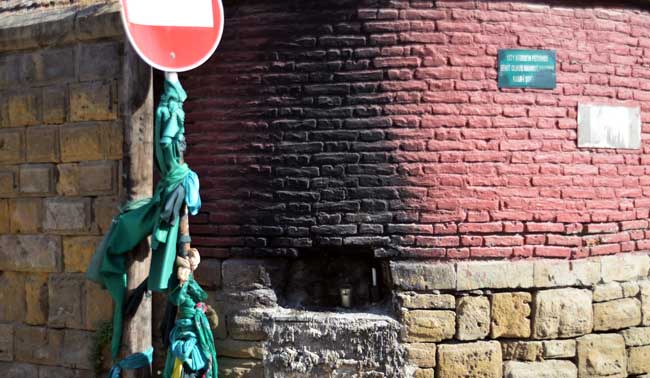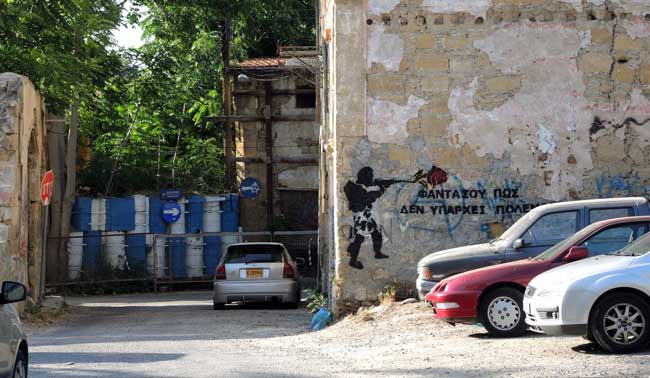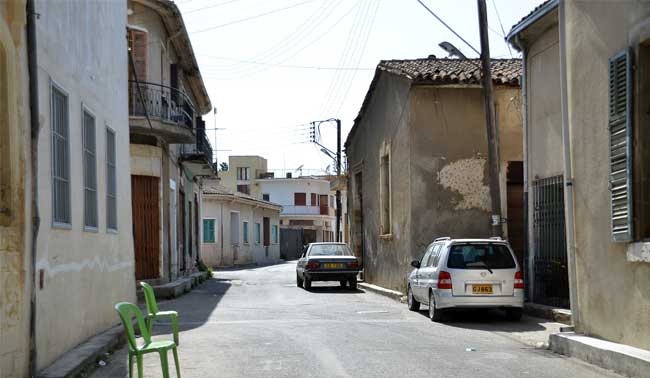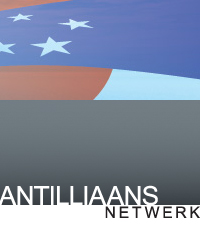At a corner of the Turkish section of Nicosia I stumble upon a small niche in the scorched wall. It is just past three in the afternoon, and the streets are empty. Actually, half of the old, walled city looks a bit deserted most of the day both on the Turkish and Greek side of the demilitarized zone. Some houses left in utter desolation, their owners gone after the hostilities that started with the Turkish invasion of 1974, followed by the separation in 1983. Smart buildings are crumbling down as if they were built of bread, the sun relentlessly parching cracks in the crust of the walls and sills. It is a sad sight. The Turkish section boasts the most beautiful buildings, like the Büyük Han caravanserai and the St. Sophia church turned Selimiye mosque. But it looks like the number of abandoned houses is larger than in Lefkosía, as the Greek-Cypriots call their half.
There is no statuette, no plaque or sign that tells something about this site, and the few passers-by are of little help.
“Sorry, no English”.
“I don’t know”. Surprise in his face.
“It is for ritual”. “Yes, but what kind of ritual?” “I don’t know”.
After more meters of empty street I continue my stroll. Some shops in the adjacent street are open, but I can’t see anyone inside. I walk past a bookshop. Some paces further I halt. Someone in there must definitely know something about the niche. There are three people in the shop. The owner, a lady in her early fifties, smiles when I say: “Does someone here speak English? I would like to know what the niche on the corner is all about”.
The bookshop is one out of an old movie. The bookcases are of different make, every time a new one had to be added, the old type was out of production. Neatly arranged rows of covers line the shelves, piles of books on top and on a couple of desks. The smell is of mature paper, no hints of dust. A place to sit down in the cool semi-dark to read some pages in the light that beams in through a half shut window latch. Least you read Turkish.
"During the Ottoman siege of 1570 a Greek commander was killed on that very spot. So it became a place where the Greeks paid homage to the Greeks who lost their lives in that battle. (N: Nicosia was under Venetian rule at that time). Later it turned into the spot where people came to ask for a favour, make a wish, like getting money. I mean everyone, Greek and Turkish alike. They burn candles, small fires, attach those green pieces of cloth on the iron bar. "But nowadays it is only Turkish Cypriots who come there, I suppose”. She nods with a sad face.
"What do you think about this separation?” I have been asking this quite a few times the past days, as did a German journalist I talked to. Strange enough we got opposite answers. The German said people were quite outspoken in their animosity towards the other side. My experience was that most people regret the secession and accuse both governments of using hostile rhetoric for their own political benefit, instead of caring about their people’s feelings.
The Turkish side displays more signs of overt nationalism. Driving towards Lefkosía in the early evening of my arrival I had seen the lights of the gigantic Turkish-Cypriot flag on the hill behind the city being lit. In town the standard waves in many places, even between the two minarets of the Selimiye mosque, where it is joined by the Turkish flag. Amazingly, both also crowns the minbar in the interior. The Greek-Cypriots seem to care less and to be more involved in catering for the tourists and saving their bank system. But when they fly a flag it is the Greek sentinel and not the banner of the republic of Cyprus, designed by a Turkish Cypriot, and featuring the undivided island.
A client enters the shop. Or is he a friend? Or both? He picks an atlas from one of the shelves to look up where Suriname is when he learns that’s where I come from. Another guy walks in and is shown the South-America page. His order is waiting on a desk. But that can wait, one gets more out of chatting than reading sometimes. So the conversation is about me and my ancestry and not, as I would have liked, about Cyprus.
"Would you like to join us for coffee? We were just about to drink a cup”, the lady says. “And there are slices of apple too. Please help yourself”.
Over a cup of ‘medium sweet Turkish coffee’ she finally answers my question. “My family, we are Turkish. But you see my mother?” She points at the old woman sitting at my table. “She cannot read Turkish, she can hardly speak the language. She has spoken Greek all her life. Because of the partition she was more or less forced to learn to speak Turkish, but she was too old for that. We have always lived together, Turkish and Greek Cypriots. I don’t understand why we are told to hate each other. It is almost forty years now, that we are separated. I am getting old. I hope that before I die, we’ll be one country again”.

By Walther Tjon Pian Gi/Creative consultant/owner Nyukwha
As a theatre performer and activist in the field of culture and media Walther is particularly interested in the way people incorporate arts, culture and religion in their daily lives. Living in different places and travelling (live or from his armchair) teaches him a lot. Walther shares his experiences and reflections through stories and pictures which he then publishes on his blogs www.cityofparamaribo.nl and www.travelpod.com/s/trips/nyukwha. More info
Pictures: Nyukwha
More Travel & Leisure articles /
Do you wish to write for Colors?







